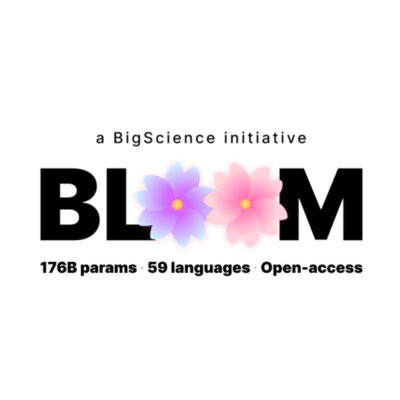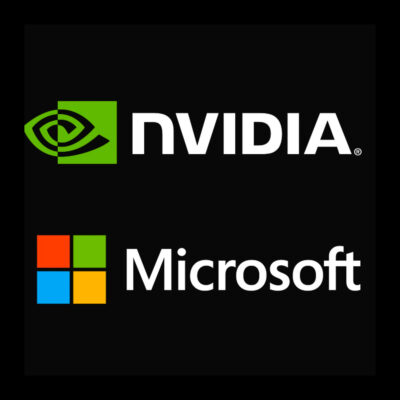Compare Models
-
Stanford University
Alpaca
FREEStanford University released an instruction-following language model called Alpaca, which was fine-tuned from Meta’s LLaMA 7B model. The Alpaca model was trained on 52K instruction-following demonstrations generated in the style of self-instruct using text-davinci-003. Alpaca aims to help the academic community engage with the models by providing an open source model that rivals OpenAI’s GPT-3.5 (text-davinci-003) models. To this end, Alpaca has been kept small and cheap (fine-tuning Alpaca took 3 hours on 8x A100s which is less than $100 of cost) to reproduce. All training data and techniques have been released. The Alpaca license explicitly prohibits commercial use, and the model can only be used for research/personal projects, and users need to follow LLaMA’s license agreement. -
Microsoft
Azure OpenAI Service
OTHERMicrosoft’s Azure OpenAI Service allows you to take advantage of large-scale, generative AI models with deep understandings of language and code to enable new reasoning and comprehension capabilities for building cutting-edge applications. Apply these coding and language models to a variety of use cases, such as writing assistance, code generation, and reasoning over data. Detect and mitigate harmful use with built-in responsible AI and access enterprise-grade Azure security. GPT-4 is available in preview in the Azure OpenAI Service and the billing for GPT-4 8K and 32K instances per 1/K tokens and can be found under those models on the tokes compare site. To note, Microsoft’s Azure OpenAI Service customers can access GPT-3.5, ChatGPT, and DALL·E too. -
Microsoft
Bing Search APIs
OTHERMicrosoft’s Bing AI search engine is powered by GPT-4. Microsoft claims the new model is faster and more accurate than ever. Bing Search APIs provide a variety of APIs with trained models for your use. The Bing Search APIs add intelligent search to your app, combining hundreds of billions of webpages, images, videos, and news to provide relevant results without ads. The results can be automatically customized to your user’s locations or markets, increasing relevancy by staying local. There are various prices for Bing Search APIs which are dependent on the feature. For customers who are interested in more flexible terms related to presenting Bing API results with their models check out the website for prices per 1,000 transactions. -
BigScience
BLOOM
FREEBigScience Large Open-science Open-access Multilingual Language Model (BLOOM) is a transformer-based LLM. Over 1,000 AI researchers created it to provide a free large language model for everyone who wants to try and it is a multilingual LLM. BLOOM is an autoregressive Large Language Model (LLM), trained to continue text from a prompt on vast amounts of text data using industrial-scale computational resources. It can output coherent text in 46 languages and 13 programming languages. It is free, and everybody who wants to can try it out. To interact with the API, you’ll need to request a token. This is done with a post request to the server. Tokens are only valid for two weeks. After which, a new one must be generated. Trained on around 176B parameters, it is considered an alternative to OpenAI models. There is a downloadable model, and a hosted API is available. -
Microsoft, NVIDIA
MT-NLG
OTHERMT-NLG (Megatron-Turing Natural Language Generation) uses the architecture of the transformer-based Megatron to generate coherent and contextually relevant text for a range of tasks, including completion prediction, reading comprehension, commonsense reasoning, natural language inferences, and word sense disambiguation. MT-NLG is the successor to Microsoft Turing NLG 17B and NVIDIA Megatron-LM 8.3B. The MT-NLG model is three times larger than GPT-3 (530B vs 175B). Following the original Megatron work, NVIDIA and Microsoft trained the model on over 4,000 GPUs. NVIDIA has announced an Early Access program for its managed API service to the MT-NLG model for organizations and researchers. -
Microsoft
VALL-E
OTHERVALL-E is a LLM for text to speech synthesis (TTS) developed by Microsoft (technically it is a neural codec language model). Its creators state that VALL-E could be used for high-quality text-to-speech applications, speech editing where a recording of a person could be edited and changed from a text transcript (making them say something they originally didn’t), and audio content creation when combined with other generative AI models. Studies indicate that VALL-E notably surpasses the leading zero-shot TTS system regarding speech authenticity and resemblance to the speaker. Furthermore, it has been observed that VALL-E is capable of retaining the emotional expression and ambient acoustics of the speaker within the synthesized output. Unfortunately, VALL-E is not available for any form of public consumption at this time. At the time of writing, VALL-E is a research project, and there is no customer onboarding queue or waitlist (but you can apply to be part of the first testers group). -
LMSYS Org
Vicuna-13B
FREEVicuna-13B is an open-source chatbot developed by a team of researchers from UC Berkeley, CMU, Stanford, MBZUAI, and UC San Diego. The chatbot was trained by fine-tuning LLaMA on user-shared conversations collected from ShareGPT. There is a 13B and 7B parameter models that are available on Hugging Face.
Vicuna-13B achieves more than 90% quality of OpenAI ChatGPT and Google Bard while outperforming other models like LLaMA and Stanford Alpaca in more than 90% of cases. The code and weights and an online demo are publicly available for non-commercial use. Here is a link to learn more about how it compares to other models – https://lmsys.org/blog/2023-03-30-vicuna/.
To use this model, you need to install LLaMA weights first and convert them into Hugging Face weights, and the cost of training Vicuna-13B is around $300.






